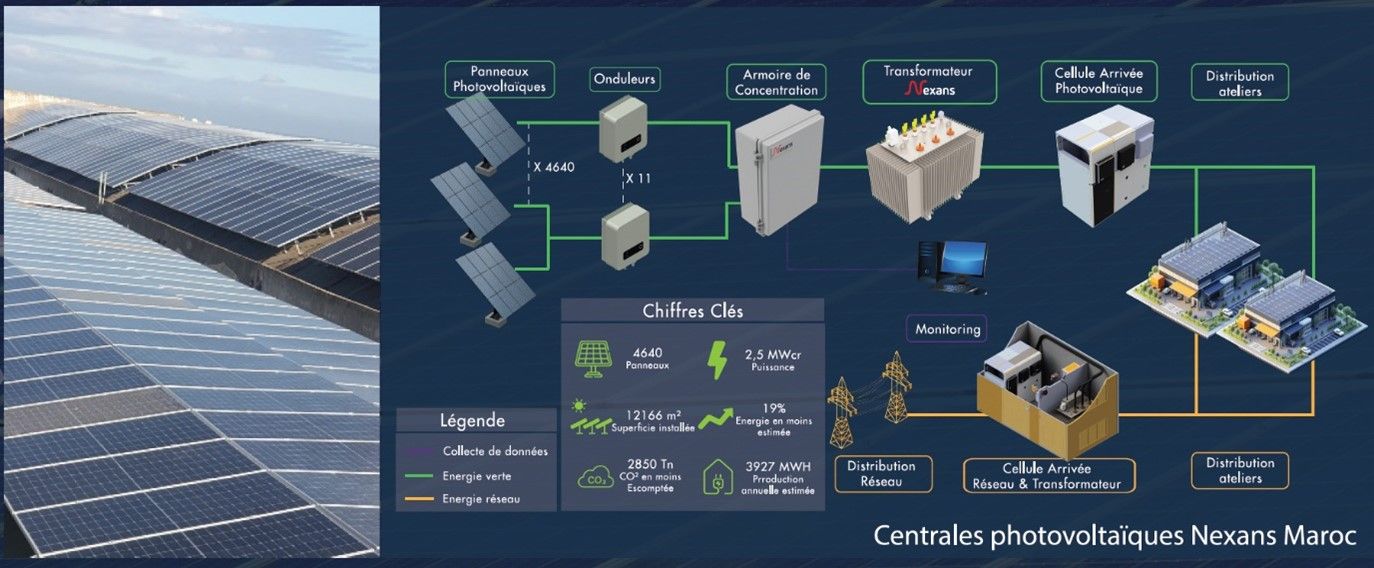- About Nexans
- Products
- Services and Solutions
- Your Business
- Newsroom
- Tools
- Search
- Contact us
- Compare
- Sign in
Economic Sobriety: A New Model for Sustainable Performance
Mar 17, 2024
At a time when the climate emergency is becoming a top priority for all countries around the world, the main challenge of our century is to ensure a more sustainable environment for populations in a fair and equitable manner...
Since the signing of the Paris Agreement, which aims, among other things, to limit the temperature rise to 1.5°C, accelerating the energy transition to achieve carbon neutrality has become the challenge of the moment. This objective calls on economic actors to respond urgently and effectively to a fundamental question: How can we create value while preserving the planet and ensuring humanity's safe and sustainable access to electricity, which remains a real obstacle to development in some regions, particularly in Africa?
It is not by chance that Africa is taken as an example when it comes to climate! Africa is a low-carbon continent that, paradoxically, is suffering more than anyone else from the devastating effects of global warming. It is therefore necessary to rethink electrification plans based on innovative economic models, while taking into account environmental and social issues to promote the development of enclaved regions.
An African vision emerging from Morocco
Indeed, the Kingdom of Morocco has embarked on an ambitious and inclusive energy transition strategy based on complementary objectives: 20% energy savings and 52% share of renewable energy in the electricity mix by 2030. As a result, Morocco has become the 4th country in the world for climate performance (source: Climate Performance Index 2023) and world leader in GDP-indexed renewable energy (source: RECAI). This makes it one of the most attractive destinations in this field. In medium voltage, for example, the Kingdom now dedicates 18% to green energy, while it has committed to increasing this share to 25% by 2024 and then to 52% by 2030. This achievement deserves praise as it is the first time that decarbonized energy has been integrated into medium voltage.

Leveraging its energy hub position, Morocco offers ideal conditions for the deployment of large-scale integrated energy strategies, creating a strike force for the fight against climate change across the continent.
These concrete actions are naturally aligned with the environmental ambitions of the Nexans group, which makes the energy transition the cornerstone of its strategy. This vision ultimately enshrines social and environmental responsibility as an essential lever in the value creation process.
And it is even more naturally that Nexans Maroc is positioning itself today at the heart of this Moroccan dynamic, as a major player in the energy transition in North and West Africa. With the Kingdom as a launch pad, Nexans asserts its presence in Africa by bringing its expertise across the entire value chain, from manufacturing to use.
Aware of the all-round standardization of decarbonized energy, Nexans, taking a clearly proactive stance, takes into account the entire life cycle of its products and works throughout the value chain to integrate sustainable development in a concrete way - from the purchase of raw materials to technical information to design offices for sustainable buildings.
The circular economy is also among the major ambitions of the group's CSR policy. In partnership with its customers, Nexans contributes to a sustainable economy through the eco-design and life cycle analysis of its products, with the aim of limiting the consumption of materials and resources by implementing a closed-loop system, while increasing the company's autonomy and reducing pollution.
Thus, Nexans' main objective is to reduce the climate footprint of its production sites by reducing CO2 emissions (Scope1&2) by 46% by 2030, using renewable energy through local production and purchasing decarbonized energy, recycling 100% of its waste, deploying energy efficiency solutions, using recycled materials and adopting low-carbon transport modes and short circuits.
Nexans is at the forefront of factory standards for the coming decades around digitalization. All plants are organized and managed under the "Nexans World Class Manufacturing (WCM)" operational standard. This standard contributes to the deployment of Industry 4.0 within the Group and aims to ensure the robustness of its industrial process and improve environmental performance.
Leveraging its expertise and innovation capabilities, Nexans is deploying new technologies to support the optimal integration of renewable energies. A strategy orchestrated by the new "E3" model, designed and developed by Nexans, in an international context marked by the seal of the permanent crisis. It is a unique production model based on a perfect synergy between economic performance and environmental performance, and in which the human variable is intimately linked in the perspective of sustainable value creation.
Our websites
Select your country to find our products and solutions
-
Africa
- Africa
- Ghana
- Ivory Coast
- Morocco
- North West Africa
- Americas
- Asia
- Europe
- Oceania